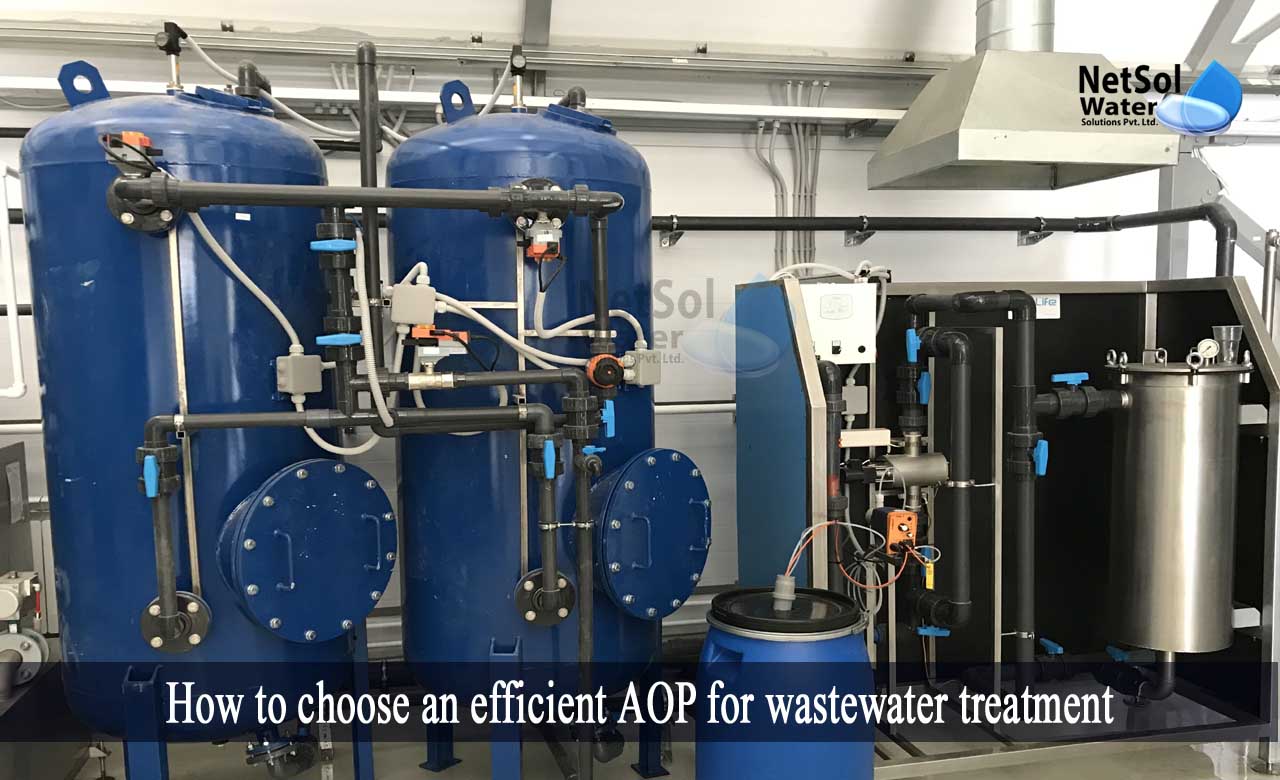How to choose an efficient AOP for wastewater treatment?
The primary oxidants in AOP are the radicals (while generating hydroxyl radicals), which break down compounds into intermediates, and then mineralize those intermediates into simple compounds, like water, carbon dioxide, and salts.
In general, the AOP molecules are formed, as specific compounds degrade, specifically ozone (O3) and hydrogen peroxide (H2O2). Other components, such as ultraviolet light (UV), act as catalysts in the reaction, encouraging the compounds to break down appropriately.
With many water/wastewater treatment solutions, each AOP option has advantages, as well as, disadvantages. As a result, it is critical to carefully select an AOP process that will work best, with your specific application.
Types of advanced oxidation processes (AOPs)
· Hydrogen Peroxide
Hydrogen peroxide, unlike ozone, cannot be used as a stand-alone oxidation treatment. It is not as effective as O3, as a secondary oxidizer, but it can react with hydrogen and oxygen-containing compounds, in a less complicated manner than ozone.
H2O2 must also be monitored for residuals that remain after treatment. Because, the compound can be toxic to humans, it may need to be treated.
· Ozone
In alkaline solutions, the ozone interacts with hydrogen compounds, and it decomposes, to reduce to OH radicals. It can be used individually, but only at higher pH levels. Though the reactions are much slower, O3 is also a powerful oxidant and acts as a secondary oxidizer, in the overall process.
· Ultraviolet Light
Ultraviolet light is a common disinfectant, because of its capacity to eradicate or stop the growth of a range of infections. Being merely a wavelength of light, UV is not an oxidant in and of itself, but it does transmit massless photons to chemical compounds, breaking their bonds swiftly and easily.As UV interaction is light-driven, contaminants like suspended solidsmay reduce its efficiency, by blocking it from the target compounds.
· Combinations
Combinations that are often used: O3/UV; O3/H2O2; H2O2/UV; O3/H2O2/UV.
These combinations leverage the strengths of the individual processes, to improve the overall efficiency of the AOP process. However, each combination is chosen based on the application.
Factors to consider while selecting an AOP:
· Composition of water
Composition of the influent water should be carefully considered, and kept in mind. Because, AOP is a complex chemical process, the process chosen is determined by the specific pollutants present in the water to be treated.
· Consumption of energy
In some cases, the AOP process can be an energy-intensive system, with certain system configurations or applications, requiring more than others.
· Cost
AOP process systems are generally more expensive, but some systems are more expensive than others. The most significant costs are associated with operational aspects, such as maintaining the required input chemicals, and energy based on contaminant levels.
· Treatment objectives
The amount of water/wastewater that must be treated, is determined by environmental regulations or reuse considerations. More standards may only necessitate a simple process, whereas, stricter standards may necessitate something a little more robust.
· UV exposure
As with any other UV disinfection process, an appropriate amount of UV exposure is required, to achieve the desired results while not consuming excessive amounts of energy, rendering this process uneconomical.
· Chemical Dose
Adequate doses of O3or H2O2 must be added, in order to achieve an acceptable concentration of OH radicals. Again, this is a chemistry-intensive process, and chemistry requires precise dosing, or the desired results will not be obtained.
Conclusion
In many cases, selecting the right system comes down to prior experience. It can be difficult to predict how a system will work solely on theory. Hours of research and testing may be required, and an engineer may have dealt with all of this in a previous, yet similar application.
Netsol Water is Greater Noida-based leading water & wastewater treatment plant manufacturer. We are industry's most demanding company based on client review and work quality. We are known as best commercial RO plant manufacturers, industrial RO plant manufacturer, sewage treatment plant manufacturer, Water Softener Plant Manufacturers and effluent treatment plant manufacturers. Apart from this 24x7 customer support is our USP. Call on +91-9650608473, or write us at enquiry@netsolwater.com for any support, inquiry or product-purchase related query.



